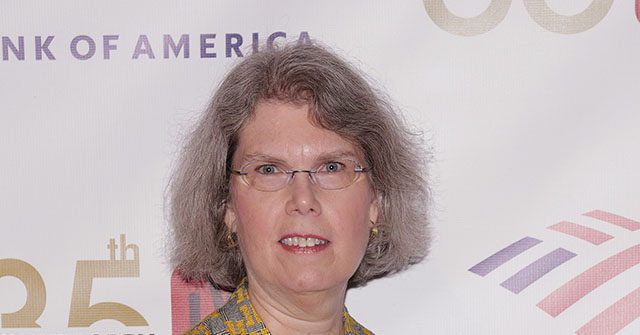NPR’s news chief Edith Chapin — who has served as the chief editor since 2023 — is stepping down from her role by the end of the year, an email to staffers revealed.
“Two years with two big executive jobs has been a comprehensive assignment,” Chapin wrote in a memo obtained by the Washington Post. “I love journalism, it has been my life for more than 35 years, and I will keep championing it for many more years.”
She added that she plans to “reset after a few months of a career break.” Her last day has not been explicitly stated, however, as she wrote, “I’ll be here for a while.”
NPR chief executive Katherine Maher wrote in a memo to staffers on Tuesday that Chapin — who has been with NPR in various capacities since 2012 — made the decision roughly two weeks ago, writing, “Edith has been an indispensable partner during my first year at NPR, a steady leader for a large part of this organization, and a fantastic collaborator as a member of the executive team.”
WATCH — President Trump: “I’d Be Honored to See” NPR, PBS “End”:
“She didn’t bat an eye when I walked in the door, and has shown me the ropes around this place with patience and sincerity. When it comes to steely fortitude in service of the mission, I sure wouldn’t want anyone else in our foxhole,” Maher continued.
This news comes as NPR goes through another major transition, as broadcasting institutions NPR and PBS are losing their flow of taxpayer dollars thanks to President Donald Trump’s rescission bill.
As Breitbart News reported last week:
The Financial Times reports broadcasting institutions NPR and PBS would lose their flow of taxpayer dollars when the package, which the Republican-led Senate approved after 2 a.m. by 51 votes to 48, is signed into law.
…
NPR and PBS have long been positioned as staunch left-wing opponents to the Republican agenda even as Trump vowed to deliver on his promise to drain the swamp in Washington, DC, and embrace fiscal sanity over a never-ending flow of taxpayer funds to public institutions.
Maher lashed out at the prospect, bizarrely telling CBS News that this poses a risk to public safety.
“Public media, public radio, public television, are a critical part of the emergency response plans of nearly half of the states in this nation,” she claimed.
“If these types of emergency alerting go away, you will have fewer outlets to be able to respond in real time,” she added.
Read the full article here


